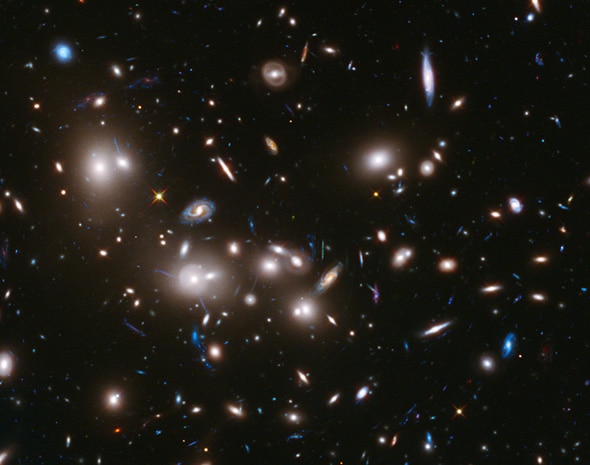Create a free profile to get unlimited access to exclusive videos, sweepstakes, and more!
Will the Universe Expand Forever? Crash Course Astronomy Episode 43: Dark
Energy

One of my favorite things to do as a science communicator is melt peoples’ brains*. There isn’t a better playing field for that than cosmology, the study of the origin, structure, and fate of the Universe itself.
Last week’s episode of Crash Course Astronomy was an introduction to the Big Bang model of the origin of the Universe. In next week’s episode we’ll dive into the details of that, exploring the first few fractions of a second of the existence of everything.
But this week’s episode looks in the other direction: What is the eventual fate of the Universe? It’s expanding now, but will it slow, stop, and reverse direction, creating the Big Crunch? Or will it sail on forever, growing evermore?
The answer, as it turns out so often when dealing with reality, is a little more complicated than that. Yes, it’ll expand forever, but the reasons and ramifications may not be obvious. Let me explain, in this week’s Crash Course Astronomy: Dark Energy.
Dark energy is a wonderful subject, both for its fun history as well as its implications to the fate of the Universe. Even more than that, it had profound implications on science itself: We’ve been studying space for a long time now, yet the key component of it remained hidden until very recently! Dark energy is tenuous, but it exists throughout the Universe, building up strength over distance. That’s why it’s so hard to observe; you have to peer to the ends of the cosmos to notice its effects.
This whole concept of the expanding Universe, cosmic acceleration, and geometry of space is weird, I know. It confuses me sometimes (well, a lot of the time), too, so don’t fret if you’re having a hard time absorbing it.
Remember, too, we’re describing physical quantities and events here using analogies many of the times (like the expanding ruler in the episode about Dark Matter), and those can be difficult. For example, my friend and cosmologist Sean Carroll has written a good post about why saying the Universe expands “faster than light” is actually incorrect. I agree with what he says, and in general I try to stick more to the phrasing “galaxies appear to move away from us faster than light”, though he makes the case that’s wrong, too.
I understand his reasoning (I think; he’s pretty smart), but when you’re trying to explain some topics in astronomy it’s easy to get into the weeds with details. There are times when you can say something simply even though it’s technically incorrect because that analogy is good enough to convey the idea. The sticky part is when the person listening wants to find out more, and discovers the analogy is flawed.
That’s a compromise I find myself making all the time (especially when you’re making a short video!), and in general the best I can do is warn you when it happens. So: This idea of superluminal expansion is pretty useful for picturing things in your head, but when you examine it using General Relativity it falls apart. If you want to know more, Sean’s post is a good place to start. Learning more about GR isn’t such a bad idea, either. And remember, we’ll be covering more of the expansion and the origin of the Universe in the next episode of Crash Course, too, so fairly warned be thee, says I.
Speaking of finding out more information, here are some links for you that might help resolidify your brain.
- About the geometry of the Universe (from U. Oregon)
- More about geometry (from NASA’s Starchild site)
- More on faster-than-light expansion
- More technical details on expansion, and an article I wrote about it
- A great video about dark energy from the good folks at Hubble
* Incidentally, I also very much enjoy breaking rules… like Betteridge’s Law.














